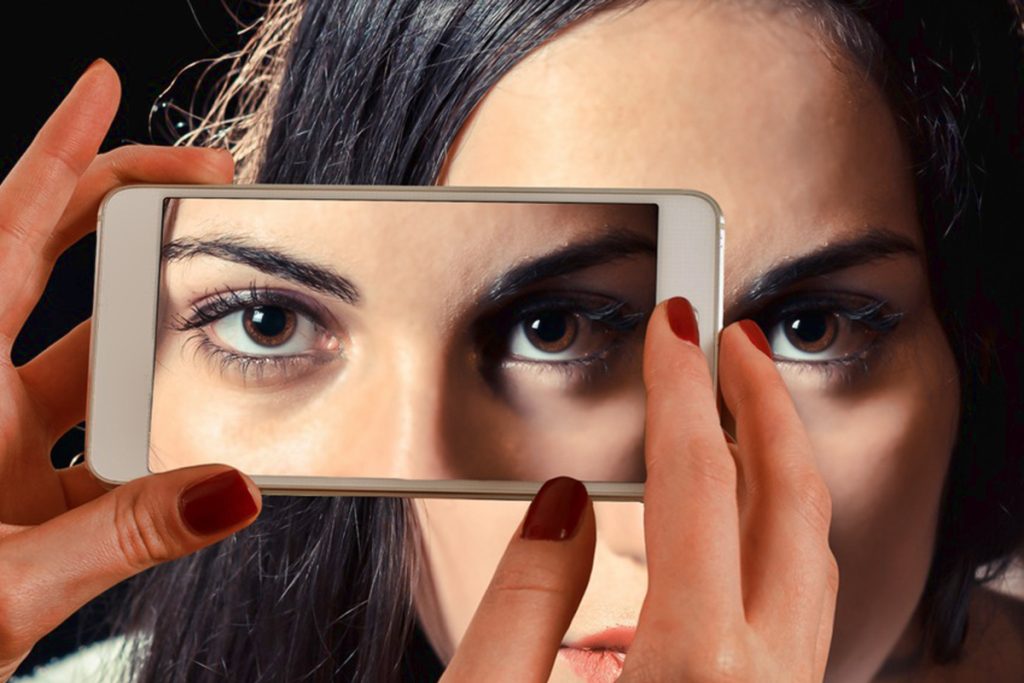How to keep your eyes healthy in our digital age

In today’s digital world, common eye issues like dry eyes, eye strain, and increased prescription needs in children under 10 often result from extended use of computers or mobile screens. These problems can manifest as discomfort, blurred vision, headaches, and even long-term vision changes, which can affect overall quality of life and productivity.
The blue light emitted from screens can further exacerbate these issues, disrupting sleep patterns and contributing to digital eye strain. Promoting to keep the eyes healthy amidst prolonged screen usage is crucial for mitigating these problems. This involves not only adopting good screen habits but also creating an environment that supports eye health.

Here are some handy tips for maintaining your eyes healthy with digital devices.
Follow the 20-20-20 rule
Regular breaks are vital for keeping your eyes healthy. The 20-20-20 rule suggests looking at something 20 feet away for 20 seconds every 20 minutes spent on a device. This simple practice can significantly help relax eye muscles and reduce eye strain.
In addition to reducing eye strain, the 20-20-20 rule can prevent the development of more serious eye conditions over time. Integrating the 20-20-20 rule into your routine can also improve productivity and concentration. Brief breaks not only rest your eyes but also give your mind a chance to refresh, potentially leading to better focus and efficiency when you return to your tasks.
Incorporating the 20-20-20 rule into daily routines is a simple yet effective way to keep your eyes healthy in the digital age. It promotes a balanced approach to screen time, contributing to overall well-being and comfort.
Prioritize adequate sleep
For those who spend extensive time on screens, getting enough sleep is crucial for keeping your eyes healthy. Aim for 7-8 hours of sleep per night to ensure your eyes are well-rested and less prone to strain. Quality sleep promotes natural lubrication of the eyes and helps prevent dryness.
To enhance sleep quality, consider reducing screen time before bed. The blue light emitted by screens can interfere with the production of melatonin, the hormone responsible for regulating sleep. Limiting screen use at least an hour before bedtime can help your body naturally prepare for sleep. Using blue light filters on your devices in the evening can also reduce the impact on your sleep cycle.
By prioritizing adequate and quality sleep, you not only support your overall health but also give your eyes the necessary rest and recovery time they need to function optimally.

Adjust the font size
Avoid straining your eyes by increasing the font size on digital devices. Small fonts can lead to squinting and prolonged staring, worsening eye strain. Larger fonts make reading and viewing more comfortable and can significantly reduce the risk of developing digital eye strain over time.
It’s also beneficial to customize the display settings to suit your specific needs. Many devices offer accessibility features such as text magnification and screen readers that can assist those with visual impairments or who simply prefer larger text. Taking advantage of these features can greatly improve your digital reading experience.
Overall, adjusting the font size and other display settings on digital devices is a straightforward yet highly effective way to protect your eyes, enhance your reading comfort, and keep your eyes healthy in the long term.
Use larger displays
Whenever possible, switch to larger screens to keep your eyes healthy. For example, use a laptop instead of a tablet for work or study, and a tablet instead of a phone for watching videos. Larger displays mean larger text and images, reducing the need for close-up viewing and intense focus. This can significantly alleviate eye strain and promote better posture, as you won’t need to hunch over small screens.
Another advantage of larger displays is the potential for ergonomic benefits. Using a desktop computer with a large monitor can promote better posture and reduce the risk of neck and back pain associated with prolonged use of smaller devices. Positioning the screen at eye level and at a comfortable distance can help maintain a natural and relaxed viewing angle, preventing strain on both the eyes and the body.
Overall, opting for larger displays whenever possible is a practical and effective strategy for reducing eye strain, enhancing productivity, and promoting better overall health and well-being in the digital age.

Stay hydrated
Drinking enough water is essential to keep your eyes healthy. Dehydration can cause dry and uncomfortable eyes, making it important to maintain adequate fluid intake throughout the day. Ensure you drink plenty of water to keep your eyes and body hydrated, as proper hydration supports the production of tears, which are crucial for maintaining eye moisture and comfort.
In addition to drinking water, incorporating foods with high water content into your diet can further aid in hydration. Fruits and vegetables such as cucumbers, watermelon, oranges, and leafy greens are excellent choices. These not only contribute to overall hydration but also provide essential vitamins and antioxidants that make sure to keep your eyes healthy.
Hydration plays a vital role in maintaining the balance of electrolytes in the body, which is important for overall cellular function, including the cells in your eyes. Proper electrolyte balance helps in the optimal functioning of the eyes’ tear film and reduces the risk of irritation and dryness.
Use lubricating eye drops
For those with chronic dry eyes, lubricating eye drops can provide much-needed relief. These drops, also known as artificial tears, help to supplement the natural tear film, providing moisture and reducing irritation.
Use them as recommended by an eye care specialist to keep your eyes comfortable and moist. It’s important to select the right type of eye drops, as some are designed for temporary relief while others are formulated for more persistent dry eye conditions.
In addition to regular use, storing eye drops properly and checking expiration dates ensure their effectiveness. Avoid using eye drops that contain preservatives if you need to apply them more frequently, as preservatives can sometimes cause additional irritation with frequent use.

How to keep your eyes healthy in our digital age conclusion
All the techniques mentioned above not only aid in short-term discomfort relief but also support to keep your eyes healthy in the long run, ensuring that your eyesight stays appealing and clear even after prolonged screen use. Adopting these practices can make a significant difference in maintaining the health and comfort of your eyes in today’s digital era.
Prioritizing these eye care practices can significantly enhance both your immediate and future eye health. By integrating these strategies into your daily routine, you can enjoy the benefits of clear, comfortable vision while navigating the demands of our digital age. Taking proactive steps to keep your eyes healthy today will help ensure that your eyesight remains sharp and healthy for years to come.



















